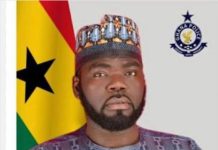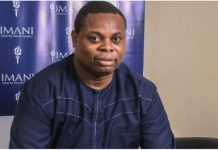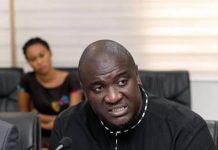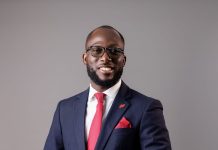HOUSTON, United States of America, December 10, 2021/ — After a strong opening to the US-Africa Energy Forum, ministers and executives dove into the age-old investment proposition, ‘Why Africa and why now?’
If one thing became clear from today’s keynotes and panel discussions, it is that ‘Africa is open for business!’ Recent changes in regulation and the restructuring of the industry across the continent is accelerating African energy for the better.
H.E. Gabriel Mbaga Obiang Lima, the Minister of Mines and Hydrocarbons for Equatorial Guinea, emphasized the work that the nation has been doing to emerge as an energy leader in Africa. Equatorial Guinea is perhaps one of the best examples of US cooperation in African energy development.
His Excellency stressed the importance of US-Africa energy collaboration as he announced that the country has signed a deal with Chevron and will soon be signing another deal with Marathon Oil.
Hon. Abdirashid Mohamed Ahmed, the Minister of Petroleum and Mineral Resources of Somalia, discussed the petroleum law signed in 2020 that, “emphasizes principles of equality, openness, accountability, and transparency.”
The petroleum law was put in place to help align Somalia’s energy regulation with the desires of foreign investors and the country is excited to see the launch of hydrocarbon exploration.
An example of a state-owned enterprise driving energy transition is the work that SNEL is doing in the Democratic Republic of the Congo to provide renewable energy solutions in a country with one of the world’s lowest accesses to electricity. Earlier this year, SNEL announced a deal to build two solar facilities both with 100 MW of capacity.
One of the points stressed by several panelists throughout the day is the need for a local approach to every step of the energy value-chain. Scot Evans, CEO of ReconAfrica, used his company’s work exploring the Kavango Basin in Namibia as an example; hiring a local workforce and training local talent is not only better enabling the communities ReconAfrica is working in, but it is also giving back to the community.
Stephen Hightower, CEO of Hightowers Petroleum, asserted that another means to a local approach is through the implementation and development of mini-refineries with a capacity between 50-500 barrels each day. These mini-refineries will allow more rural and disconnected communities to access much needed diesel and solving for several different pain points in the distribution of power-generating resources.
The American Petroleum Institute (API) hosted the final panel at USAEF2021 on day one highlighting global standards and best practices for energy investment. Global Standards Strategy Associate at API, Bryan Allen, highlighted the need for more free trade agreements between the US and Africa to ease the process of energy licensing and stressed the significance of a ‘Africa collaborating’ over ‘Africa competing’ narrative.
Virtual Delegate Passes are still available to view the sessions live. Register now (https://bit.ly/3IEBnUc) to watch Day Two of the US-Africa Energy Forum taking place in Houston, Texas.
About Energy Capital & Power:
Energy Capital & Power is the African continent’s leading investment platform for the energy sector. Through a series of events, online content and investment reports, we unite the entire energy value chain – from oil and gas exploration to renewable power – and facilitate global and intra-African investment and collaboration.










































